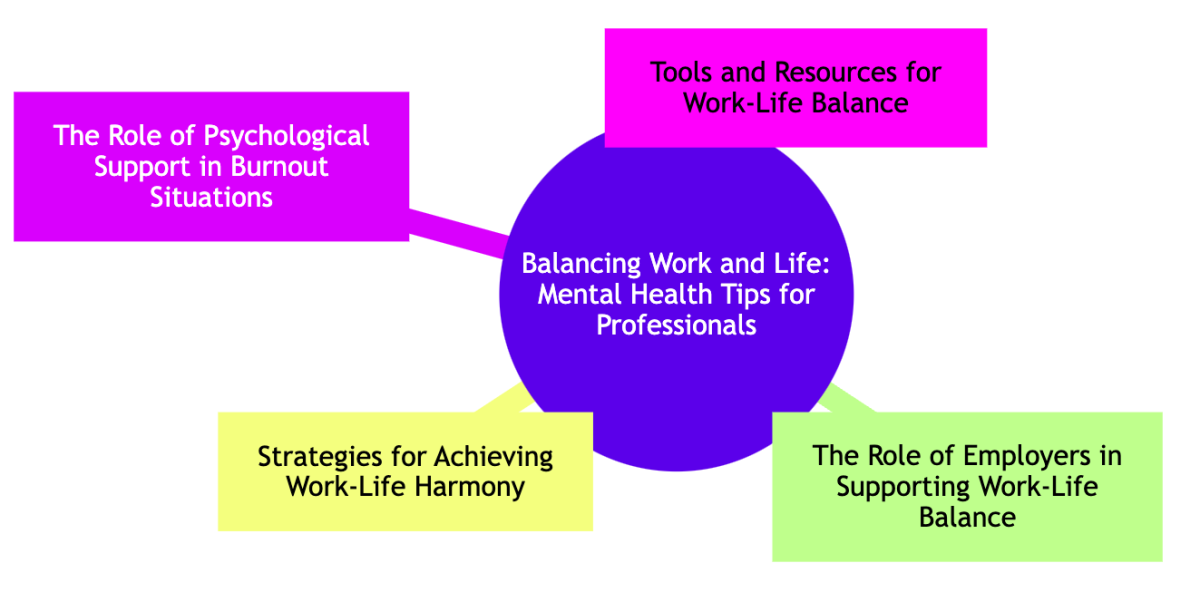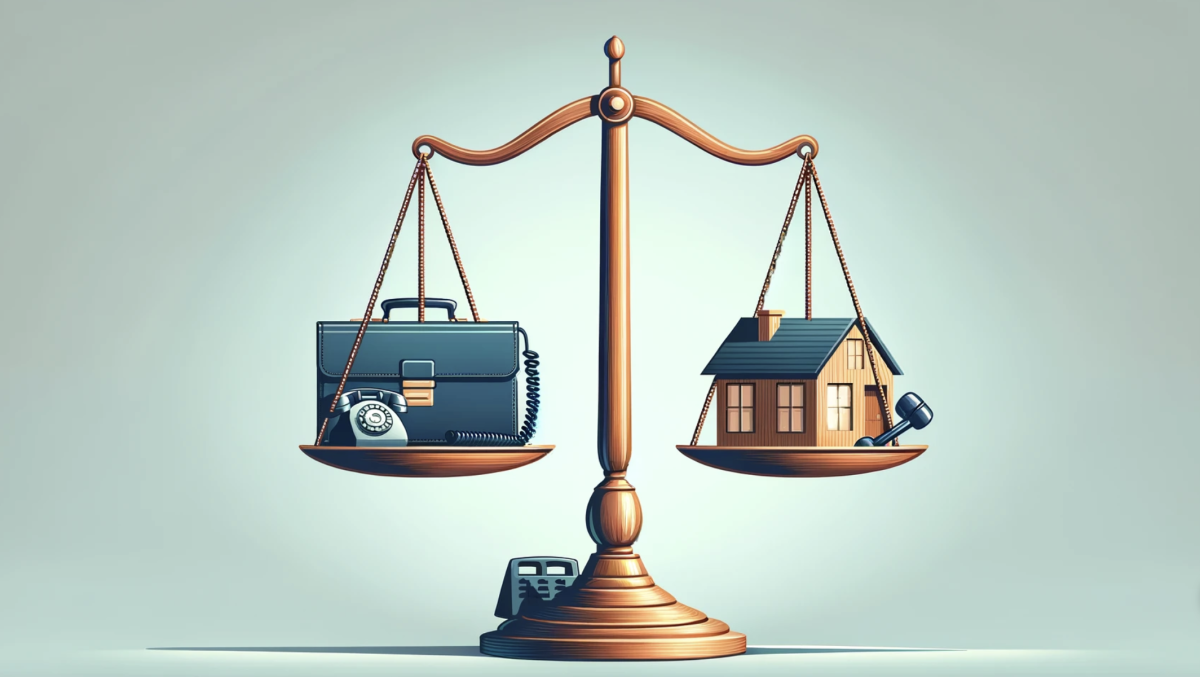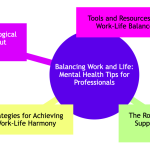Understanding Work-Life Balance
Achieving a harmonious balance between work and personal life is essential for mental and physical well-being. In an era where professional demands often overshadow personal needs, understanding and implementing work-life balance is more crucial than ever. It's about creating a fulfilling life where work and personal interests coexist in a healthy, sustainable way.
If you or a loved one could benefit from professional guidance to achieve a healthier work-life balance, Brooklyn psychologist, David Tzall can help you with those first steps.
Key Takeaways:
- Essential Nature of Balance: Work-life balance is vital for maintaining mental health and overall life satisfaction.
- Challenges to Achieve Balance: Common obstacles include long work hours, technological encroachment into personal time, and societal pressures.
- Mental Health Implications: Poor balance can lead to stress, anxiety, and burnout.
- Physical Health Concerns: Neglecting personal time can result in physical health issues like sleep disorders and chronic fatigue.
- Productivity and Quality of Life: A well-balanced life enhances productivity at work and overall quality of life.

The Realities of Work-Life Imbalance
Work-life imbalance is a growing concern, with far-reaching consequences. It often results from a high-pressure work environment, extended working hours, and the challenge of disconnecting from work due to technological advancements. This imbalance can lead to significant stress, affecting both mental and physical health, and diminishing overall life satisfaction.
Table: Statistics on Work-Life Imbalance and Its Effects
|
Factor |
Impact on Mental Health |
Impact on Physical Health |
Impact on Productivity |
|
Extended Working Hours |
Increased stress levels |
Sleep disturbances |
Decreased efficiency |
|
Lack of Personal Time |
Higher risk of depression |
Elevated blood pressure |
Reduced creativity |
|
Constant Connectivity |
Anxiety and burnout |
Weight gain or loss |
Lower job satisfaction |
Prioritizing Mental and Physical Health
Prioritizing mental and physical health is crucial in maintaining a healthy work-life balance. It involves setting boundaries to ensure personal time, engaging in activities that reduce stress, and seeking professional help when necessary. Physical health, often overlooked, is equally important and includes regular exercise, proper nutrition, and adequate rest.
- Mental Health Focus: Incorporate stress-reduction activities like meditation, hobbies, or therapy.
- Physical Health Maintenance: Engage in regular exercise, maintain a balanced diet, and ensure sufficient sleep to combat work-related stress.
Strategies for Achieving Work-Life Harmony
Finding the right balance between work and personal life is a dynamic process. It requires continuous adjustment and a proactive approach. The key lies in identifying strategies that work for you, adapting them to your lifestyle, and being consistent in their application.
- Effective Time Management: Plan and prioritize your tasks. Use tools like digital calendars or planners to keep track of deadlines and personal commitments.
- Setting Clear Boundaries: Define strict limits between work and personal time. This might mean turning off work notifications after hours or dedicating weekends solely to family and leisure activities.
- Regular Breaks and Downtime: Incorporate short breaks during work hours and ensure you have downtime to relax and recharge.
- Mindfulness and Self-Care: Engage in activities that promote relaxation and mindfulness, such as yoga, meditation, or hobbies that you enjoy.
- Seeking Flexibility: Where possible, negotiate with your employer for flexible working hours or remote work options to better manage your time.
The Role of Employers in Supporting Work-Life Balance
Employers play a crucial role in facilitating a healthy work-life balance for their employees. By adopting certain practices and policies, they can significantly reduce workplace stress and enhance overall productivity.
- Flexible Working Hours: Implementing flexible work schedules allows employees to manage their work and personal commitments more effectively.
- Remote Work Options: Offering the option to work from home can help employees save time on commuting and balance their personal responsibilities better.
- Mental Health Days: Encouraging employees to take days off specifically for mental health can prevent burnout and promote well-being.
- Wellness Programs: Providing access to wellness programs, including gym memberships or counseling services, supports employees' physical and mental health.
- Regular Check-Ins and Support: Creating an environment where employees feel comfortable discussing their workload and stress levels with their managers.
The Role of Psychological Support in Burnout Situations
Benefits of Professional Psychological Support
In situations of burnout, professional psychological support can be invaluable. Psychologists offer coping strategies, stress management techniques, and personalized advice to navigate through challenging work scenarios. They provide a comfortable setting for employees to express their concerns and work towards solutions.
Role of Family and Friends
The support of family and friends is integral in managing work-related stress. Their understanding, empathy, and encouragement can provide the emotional strength needed to maintain a healthy work-life balance.
Achieving Personal Goals
Setting and achieving personal goals plays a significant role in overall satisfaction and well-being. Whether it's pursuing a hobby, learning a new skill, or spending quality time with loved ones, these activities contribute to a balanced life and provide a sense of fulfillment beyond professional achievements.
Tools and Resources for Work-Life Balance
In the current digital era, an array of tools and resources are readily available to assist professionals in effectively managing their work-life balance. These resources range from digital applications designed for time management to platforms dedicated to mindfulness and stress reduction. Crucially, alongside these digital tools, human resources such as professional mental health support and support groups play an indispensable role. They offer a more personalized and empathetic approach to managing work-life challenges.
Professional mental health support, including psychologists and therapists, provides tailored guidance and strategies for mental well-being and stress management. They offer a safe space for discussing work-related stressors and personal challenges, helping individuals develop coping mechanisms and strategies for a balanced life.
Support groups, whether in-person or online, offer a community-based approach to work-life balance. These groups provide a platform for sharing experiences, offering mutual support, and learning from others facing similar challenges. The collective wisdom and camaraderie found in support groups can be incredibly empowering and reassuring.
Comparison Table: Resources and Apps for Work-Life Balance
|
Resource/App |
Function |
Benefits |
|
Mental Health Professional |
Professional Guidance |
Offers personalized support and strategies for mental well-being and stress management. |
|
Support Groups |
Community Support |
Provides a platform for sharing experiences and mutual support, enhancing coping strategies. |
|
Project Management |
Organizes tasks, deadlines, and projects to enhance productivity. |
|
|
Headspace |
Mindfulness and Meditation |
Offers guided meditation to reduce stress and improve focus. |
|
RescueTime |
Time Management |
Tracks time spent on applications and websites, providing insights into productivity. |
|
Calm |
Stress Reduction |
Provides relaxation techniques, sleep stories, and meditation guides. |
|
Asana |
Task Management |
Helps in organizing work tasks and collaborating with team members efficiently. |
Conclusion: Embracing a Balanced Lifestyle
Embracing a balanced lifestyle is essential for professionals to thrive in both their personal and professional lives. The key lies in recognizing the importance of this balance and actively working towards it. Utilizing tools and resources can significantly aid in this process, providing structured ways to manage time, reduce stress, and prioritize well-being.
Brooklyn-based Psychologist David Tzall is standing by as a resource for anyone in NYC feeling the heavy effects of burnout. He understands the challenges faced by professionals in maintaining this balance and offers dedicated support and guidance in this journey. By embracing these strategies and tools, professionals can achieve a healthier, more fulfilling lifestyle, where success is measured not just by professional achievements but by overall happiness and well-being.







